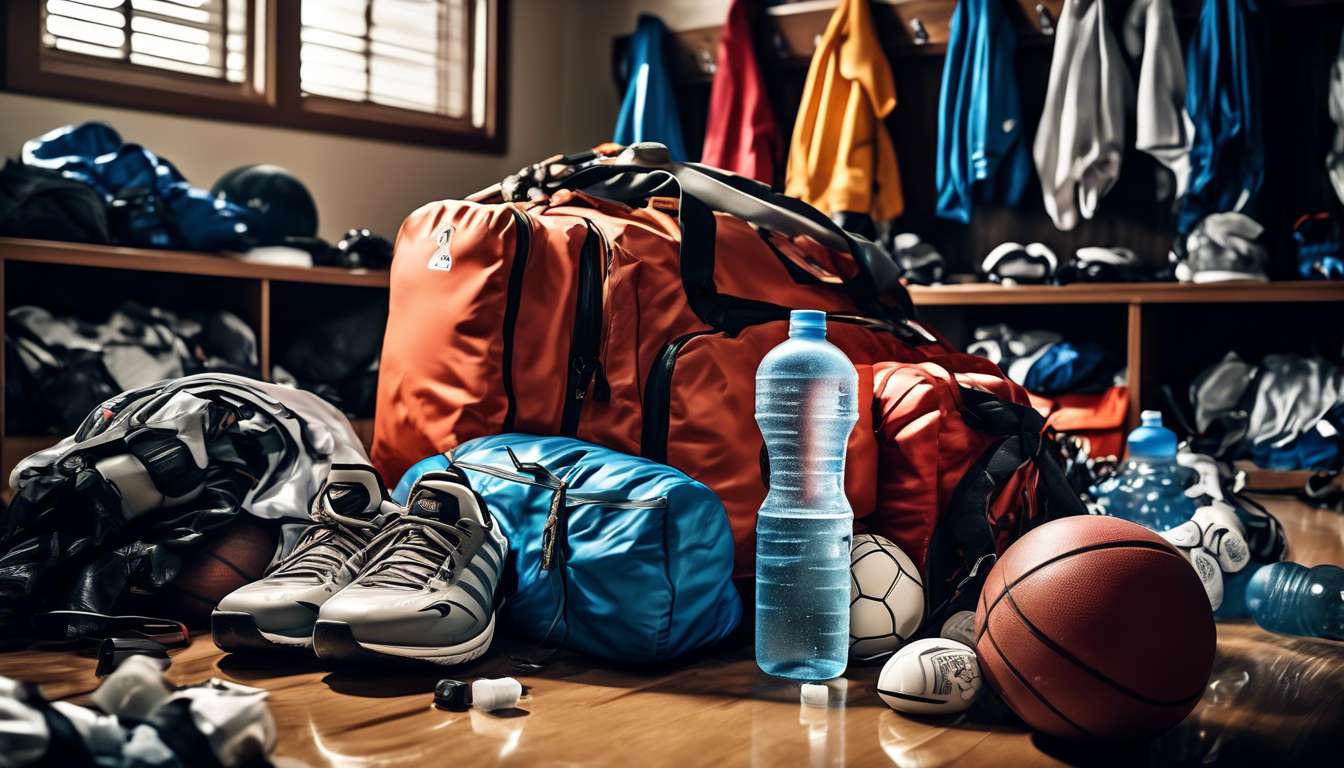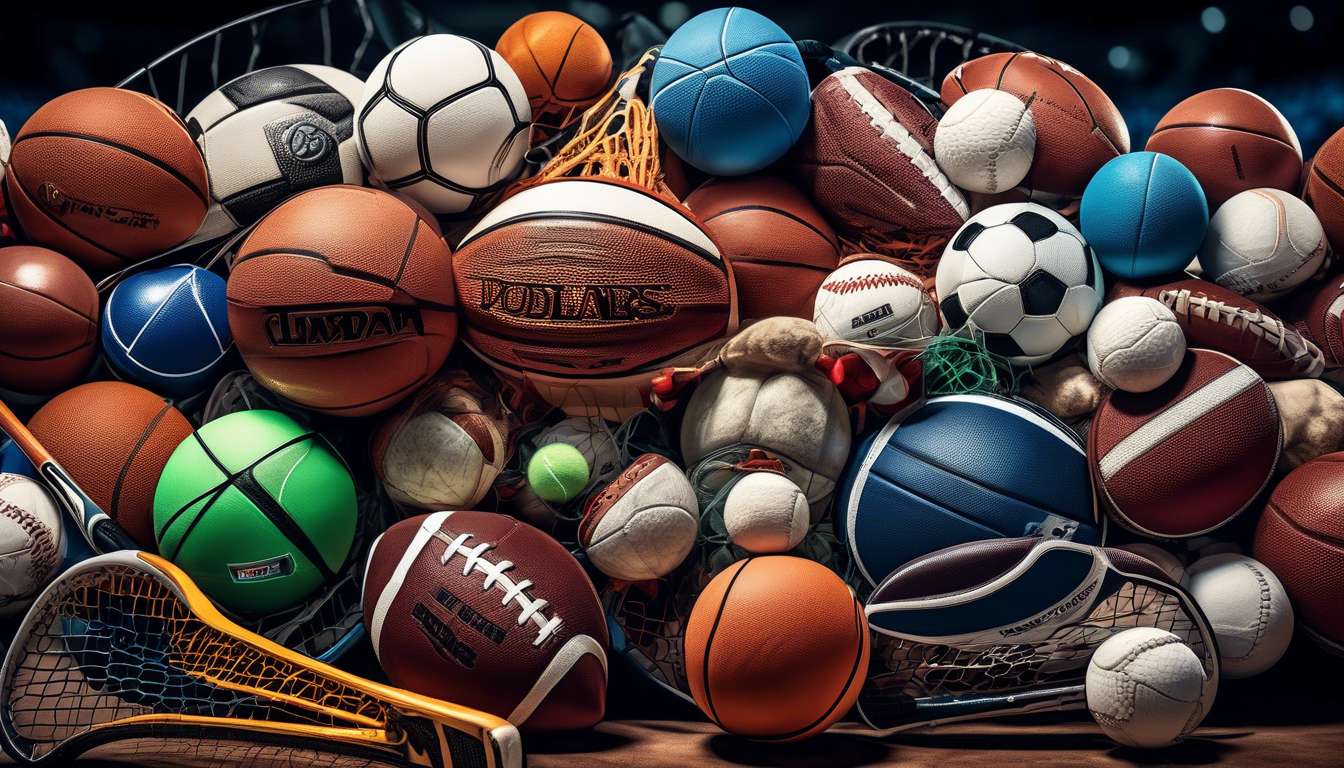As new sports enthusiasts, we often find ourselves brimming with excitement and eager to dive headfirst into our chosen activities. However, in our enthusiasm, we sometimes overlook common pitfalls that can hinder our progress and enjoyment. Whether we are stepping onto the basketball court for the first time, lacing up our running shoes, or grabbing a racket for a friendly match, it’s crucial to recognize the mistakes that can impede our growth in these pursuits.
In this article, we aim to guide fellow newcomers through the eight most common missteps we should avoid. By learning from those who have navigated these challenges before us, we can enhance our skills, improve our performance, and most importantly, sustain our passion for the sports we love.
Let’s embark on this exhilarating journey with a clear understanding of what to sidestep, ensuring our experiences are both rewarding and fulfilling.
-
Neglecting Proper Warm-Up and Cool-Down
- Always dedicate time to warming up before and cooling down after your activities to prevent injuries and aid recovery.
-
Overtraining
- Avoid pushing yourself too hard too soon. Gradually increase your training intensity and duration to avoid burnout and injury.
-
Ignoring Technique
- Focus on learning proper techniques from the start. This will help improve your performance and prevent injuries.
-
Skipping Rest Days
- Rest days are crucial for recovery. Make sure you incorporate them into your training schedule.
-
Poor Nutrition and Hydration
- Fuel your body with the right nutrients and maintain hydration to support your sporting activities.
-
Inadequate Equipment
- Invest in the appropriate gear and equipment for your sport to ensure safety and improve your performance.
-
Setting Unrealistic Goals
- Set achievable goals to maintain motivation and track your progress effectively.
-
Neglecting Mental Preparation
- Mental readiness is as important as physical readiness. Prepare mentally for your activities to enhance focus and enjoyment.
By keeping these points in mind, we can enjoy our sporting endeavors while avoiding common mistakes that could derail our progress. Let’s stay committed to learning and growing in our sports journey.
Inadequate Warm-Up and Cool-Down
Many of us make the mistake of skipping warm-ups and cool-downs, leading to a higher risk of injury. We get so excited about diving straight into our workouts that we forget the importance of preparing our bodies.
A proper warm-up doesn’t just prevent injuries; it also enhances our performance by increasing blood flow and flexibility. We can think of it like priming our engines before hitting the road.
In our community, understanding the balance between exercise, rest, and nutrition is key.
- Skipping warm-ups can contribute to overtraining because our muscles aren’t adequately prepared for the stress we put them through.
- Overtraining can derail our progress, leaving us sidelined and frustrated.
Let’s not ignore our cool-downs either.
- They help in recovery, easing our transition from high activity to rest.
- Cool-downs can aid in reducing muscle soreness.
Together, let’s prioritize our warm-ups and cool-downs to stay safe and connected.
Overtraining Risks
Pushing ourselves too hard in our fitness journey can lead to the detrimental effects of overtraining. We’ve all been there, eager to push limits and achieve our goals. However, when we overtrain, our bodies can suffer, leading to:
- Fatigue
- Injury
- Burnout
To avoid these pitfalls, it’s essential to prioritize a proper warm-up. A good warm-up:
- Prepares our muscles and minds for the challenges ahead
- Reduces the risk of injuries
- Enhances performance
Equally important is our nutrition. Fueling our bodies with the right nutrients supports recovery and growth, ensuring we’re ready for the next workout. Skipping meals or neglecting hydration can exacerbate the effects of overtraining, leaving us feeling drained and less motivated to continue.
Let’s remember, our fitness community thrives on balance and support. By listening to our bodies and respecting their limits, we maintain a sustainable fitness journey. Together, we can achieve our goals without compromising our well-being.
Technique Neglect
Neglecting proper technique can hinder our progress and increase the risk of injury in our fitness routines. As a community of sports enthusiasts, we all want to thrive and support each other in achieving our goals. One of the most vital components of our success is mastering the correct techniques for each exercise or sport. Without proper form, we might find ourselves sidelined due to injuries that could easily have been avoided.
Incorporating a thorough warm-up into our routine is essential. It prepares our muscles, improving flexibility and reducing the chances of strains or sprains.
When we focus on technique, we’re less likely to fall into the trap of overtraining, which can lead to burnout and injuries.
Nutrition plays a crucial role in maintaining energy levels and aiding recovery. By fueling our bodies with the right nutrients, we ensure that they’re equipped to perform well and recover effectively.
Let’s prioritize learning and practicing the right techniques, creating a safe and supportive environment for everyone.
Skipping Rest Days
The Importance of Rest Days
Many of us underestimate the importance of rest days, but they’re crucial for allowing our bodies to recover and grow stronger.
When we skip rest days, we risk overtraining, which can lead to injuries and burnout. By giving our muscles time to repair, we’re actually setting ourselves up for better performance and progress.
Creating a Supportive Fitness Community
Let’s face it, we all want to be part of a community that thrives and supports each other’s fitness journeys. Respecting rest days is key to achieving that sense of community.
Balanced Approach to Fitness
It’s easy to get caught up in the excitement and forget the role rest plays alongside proper nutrition and a solid warm-up routine. Together, they create a balanced approach that helps us stay energized and motivated.
- Proper nutrition
- Solid warm-up routine
- Regular rest days
Embracing Rest
Rest days aren’t about being lazy; they’re about ensuring we have the stamina to keep going. Let’s embrace rest as a vital component of our training regimen and encourage each other to listen to our bodies, avoiding unnecessary setbacks.
Nutrition and Hydration Essentials
Ensuring Proper Fuel and Hydration
Ensuring we’re properly fueled and hydrated is essential for maximizing our performance and recovery in any sport. Nutrition isn’t just about eating; it’s about giving our bodies the energy and strength we need to excel.
Balanced Diet
A balanced diet filled with the right nutrients is crucial. We should include a variety of:
- Proteins
- Carbohydrates
- Healthy fats
Hydration
Staying hydrated is equally important. Make sure to drink enough water:
- Before workouts
- During workouts
- After workouts
Warm-Up Sessions
Warm-up sessions are vital as they prepare our bodies for the physical demands ahead and help us avoid injuries. If we’re not properly fueled, our warm-ups and overall performance may suffer.
Avoid Overtraining
Be cautious of overtraining. Our bodies need time to recover, and proper nutrition aids this process.
Community and Thriving Together
By understanding these essentials, we not only enhance our own experience but also contribute positively to our community of sports enthusiasts. Let’s fuel up and thrive together!
Equipment Inadequacy
Many new sports enthusiasts make the mistake of using inadequate equipment, which can hinder performance and increase the risk of injury. We often underestimate the importance of quality gear, thinking we can push through with what we have. However, appropriate equipment is as crucial as a proper warm-up.
Whether it’s running shoes, a tennis racket, or cycling gear, the right fit and type can make all the difference in our sports journey.
Investing in the right equipment not only boosts performance but also helps us avoid overtraining injuries.
- When we use gear that suits our needs, we’re less likely to strain muscles or joints unnecessarily.
Additionally, proper equipment supports our nutrition efforts by allowing us to focus on our skills and energy levels rather than discomfort or pain.
Our community thrives when we share tips and experiences about gear that works, helping each other make informed choices.
Let’s prioritize our safety and success by choosing equipment wisely.
Unrealistic Goal-Setting
Setting Realistic Goals
Many of us fall into the trap of setting unrealistic goals, which can lead to frustration and burnout. We often envision ourselves achieving greatness overnight, forgetting that sports require patience and consistency. By setting the bar too high, we risk overtraining, which can not only dampen our spirits but also lead to injuries. It’s important to remember that small, achievable milestones are the stepping stones to our ultimate ambitions.
Strategies for Avoiding Unrealistic Goal-Setting
To avoid the pitfalls of unrealistic goal-setting, consider the following strategies:
-
Incorporate Proper Warm-Ups
- A well-prepared body is less prone to injuries.
- Proper warm-ups enable the body to handle increasing challenges over time.
-
Prioritize Nutrition
- Our bodies need the right fuel to perform and recover.
- Focus on balanced meals that support your training regimen.
Embracing Realistic Expectations
In our shared journey, it’s essential to embrace realistic expectations. Progress might be slow, but by supporting one another and celebrating every small victory, we’ll find ourselves moving steadily toward our goals.
Mental Preparation Importance
A strong mental game is crucial in sports, allowing us to overcome challenges and stay motivated on our journey. When we’re mentally prepared, we’re better equipped to handle the ups and downs of training and competition, creating a supportive environment for ourselves and our teammates.
Mental Preparation begins with a good warm-up that not only readies our bodies but also focuses our minds. Skipping mental warm-ups can lead to overtraining, as we push ourselves without considering our mental limits.
It’s essential to:
- Listen to our bodies and minds
- Recognize when we need rest
Consequences of Overtraining include:
- Physical health issues
- Burnout
- Diminished motivation
Proper Nutrition supports our mental state by providing the energy and focus needed to stay sharp. By fueling our bodies well, we enhance our mental resilience and maintain a positive mindset.
Together, we can build a strong mental foundation, ensuring a fulfilling sports experience.
How can I find a community or group to engage with other sports enthusiasts?
We can easily find a community or group to connect with other sports enthusiasts by utilizing several resources:
- Social Media Platforms: Sites like Facebook, Twitter, and Instagram offer groups and pages dedicated to various sports and events.
- Sports Forums: Online forums are a great place to discuss sports-related topics and meet people with similar interests.
- Local Sports Clubs: Joining a local club can provide opportunities for in-person interactions and activities.
Ways to Engage with the Community:
- Engage in Discussions: Participate in conversations and share your insights or experiences.
- Attend Events: Go to local games, tournaments, or meet-ups to connect with others.
- Participate in Group Activities: Join team sports, training sessions, or workshops to actively engage with the community.
Benefits of Connecting with a Sports Community:
By actively seeking out these opportunities, we can foster meaningful connections and build a supportive network within the sports community. Engaging with like-minded individuals helps enrich our passion for sports and enhances our overall experience.
What are some beginner-friendly sports activities that require minimal equipment?
We’ve found that activities like running, swimming, and yoga are ideal for beginners with minimal equipment needs.
These sports offer a great starting point for those looking to get active without breaking the bank.
- Running: Only requires a good pair of shoes.
- Swimming: Can often be done at public pools.
- Yoga: Just needs a mat.
These options make it easy for anyone to jump into a new sport and start enjoying the benefits.
How do I track my progress effectively as a new sports enthusiast?
Tracking Progress as New Sports Enthusiasts
We effectively track our progress by:
-
Setting Specific Goals: Establish clear, achievable milestones to guide our fitness journey.
-
Recording Workouts: Keep a detailed log of each workout session to monitor improvements over time.
-
Using Fitness Apps: Leverage technology to track performance metrics and stay informed about our progress.
Staying Motivated and Focused
-
Regularly review advancements to maintain motivation and focus on improvement.
-
Share progress with supportive friends or join online communities for encouragement and accountability.
Celebrating Achievements
- Recognize and celebrate even small victories to stay engaged and committed to our fitness goals.
By following these steps, we ensure a structured and rewarding improvement journey.
Conclusion
Avoiding Common Mistakes in Your Sports Journey
As a new sports enthusiast, avoiding these common mistakes will help you stay safe, improve performance, and enjoy your journey in the world of sports.
Key Practices for Success:
-
Prioritize Warm-Up and Cool-Down:
- Engage in proper warm-up routines to prepare your body.
- Implement cool-down exercises to aid recovery.
-
Be Mindful of Overtraining:
- Listen to your body to prevent injuries.
- Balance training intensity and rest.
-
Focus on Technique:
- Master the correct techniques to enhance performance.
- Seek guidance from coaches or experienced athletes.
-
Take Care of Your Body:
- Ensure adequate rest and recovery.
- Maintain a balanced diet and stay hydrated.
-
Set Realistic Goals:
- Establish achievable objectives to stay motivated.
- Regularly assess and adjust your goals.
-
Ensure Proper Equipment:
- Use the right gear for your sport to enhance safety and performance.
-
Don’t Underestimate Mental Preparation:
- Cultivate a strong mental game to tackle challenges.
- Practice visualization and positive thinking.
Enjoy the Process:
Embrace the journey, enjoy the process, and keep pushing yourself to be the best athlete you can be!




